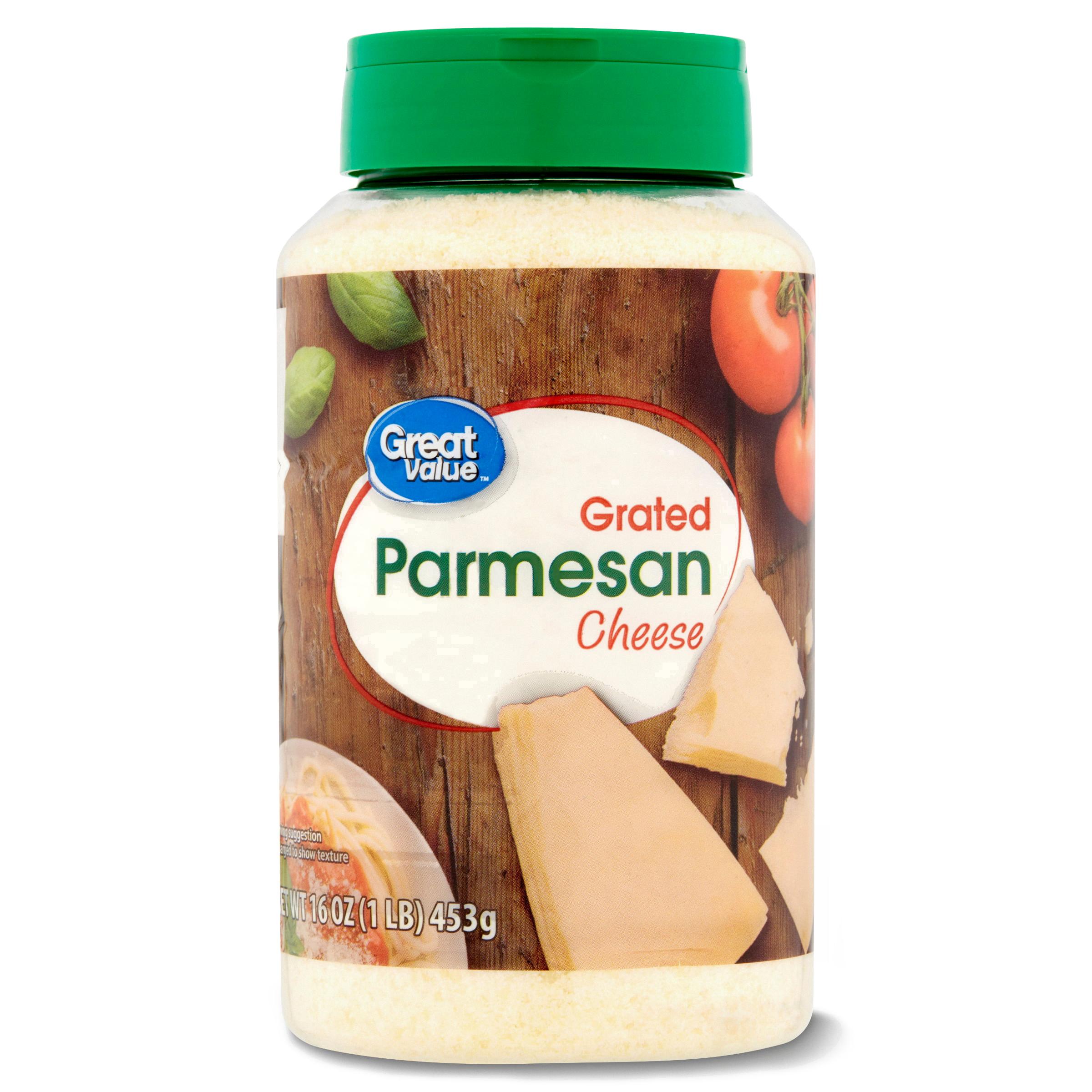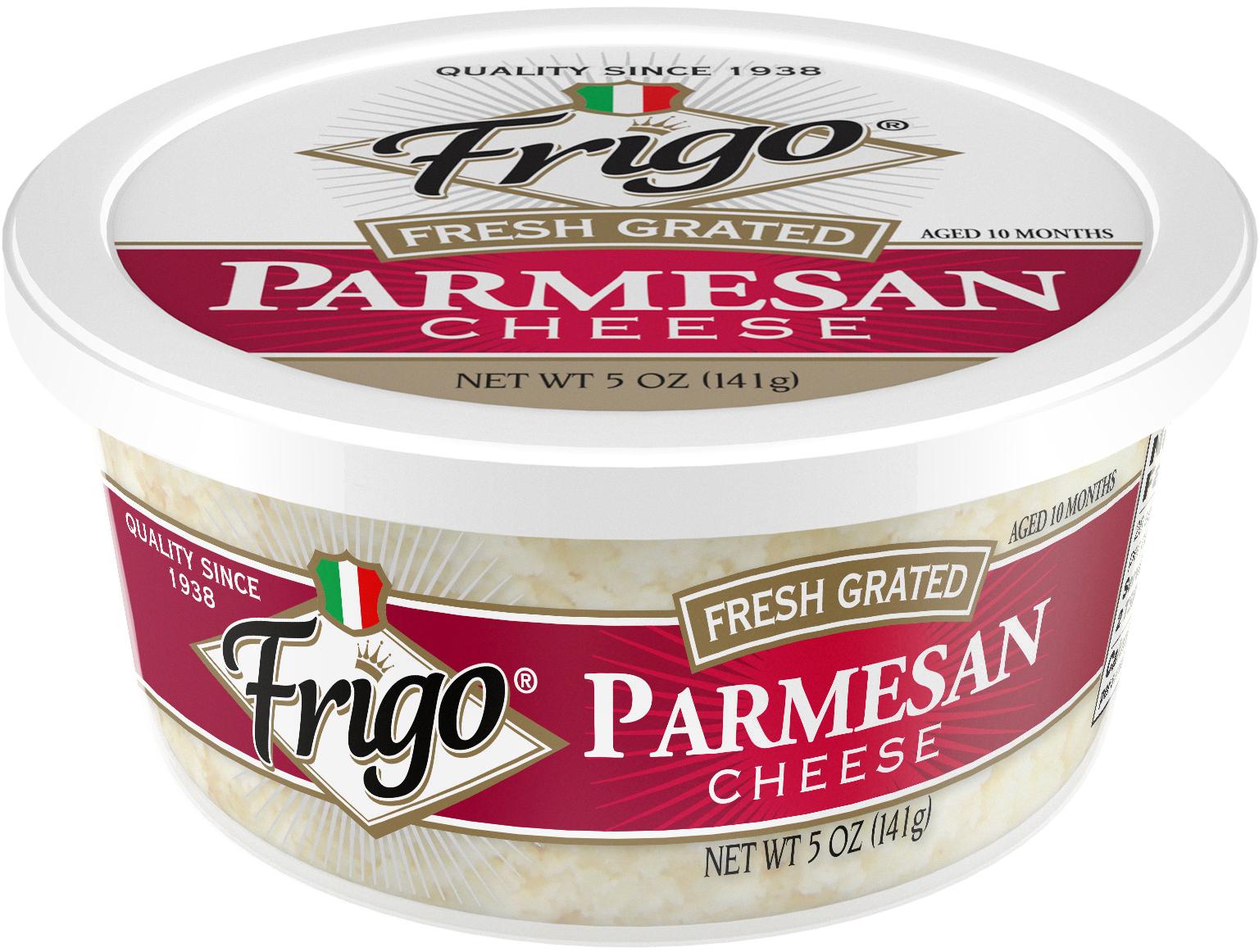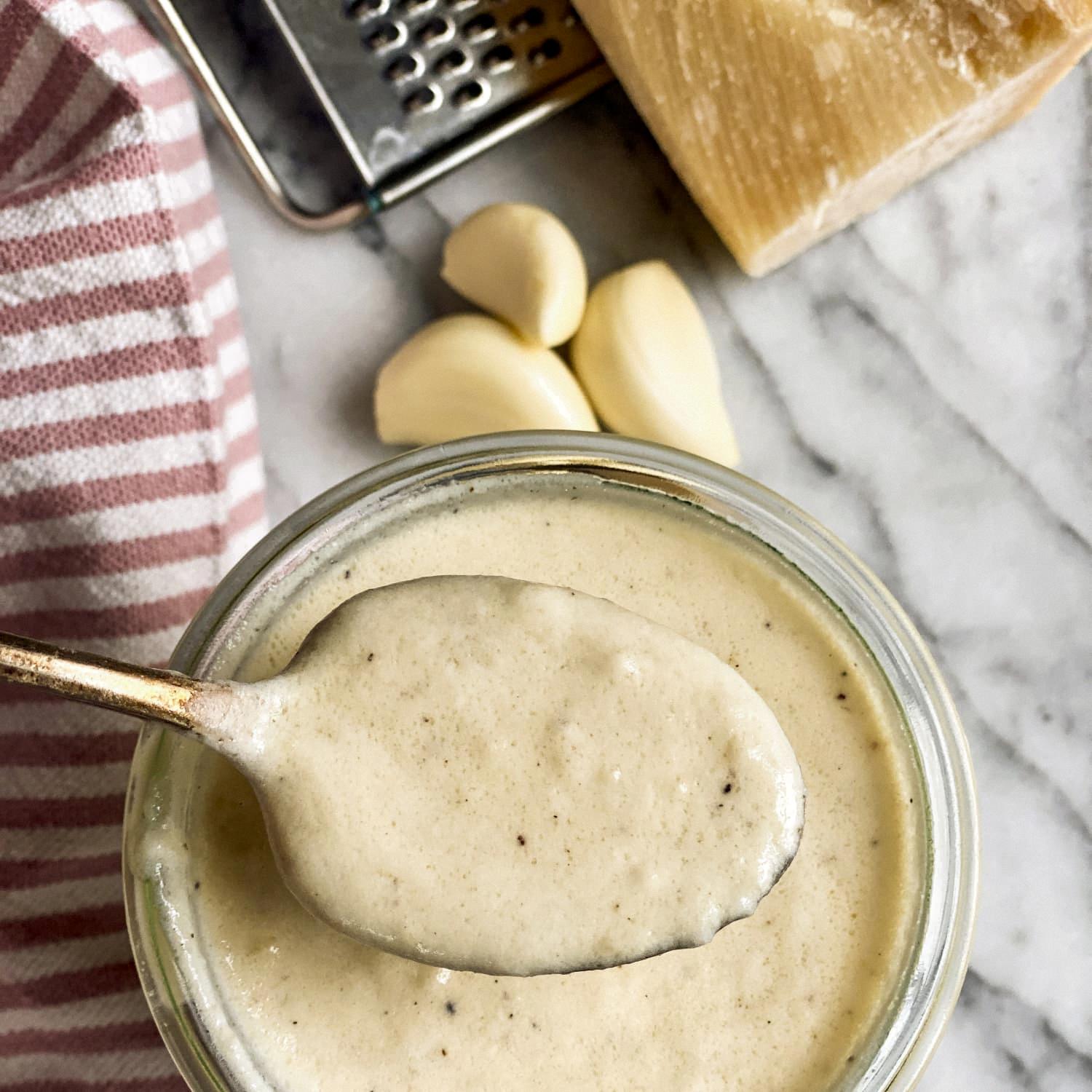Parmesan cheese is one of the most popular and beloved types of cheese in the world. It is known for its nutty, rich flavor and crumbly texture. One of the questions that often comes up is whether or not Parmesan cheese melts. In this blog post, we’ll explore the answer to this question and why it matters.
First, let’s begin by discussing what happens when cheese melts. When cheese is heated, the proteins in the cheese break down, and the fat begins to separate. This causes the cheese to become gooey and stretchy. Some cheeses, like mozzarella, are known for their excellent melting properties, while others, like feta, do not melt well at all.
So, what about Parmesan cheese? Parmesan is a hard, aged cheese that is typically grated over dishes like pasta, pizza, and salads. Because of its texture and composition, Parmesan cheese does not melt in the same way that other cheeses do. This is because Parmesan cheese is low in moisture, which means that it doesn’t have the water content necessary for melting.
However, this doesn’t mean that Parmesan cheese can’t be melted. In fact, there are a few ways to melt Parmesan cheese to create a delicious, cheesy sauce. One of the easiest ways to do this is by adding hot liquids, like pasta water or heavy cream, to grated Parmesan cheese. The heat from the liquid helps to distribute the cheese evenly, creating a smooth and creamy sauce.
Another way to melt Parmesan cheese is by grating it finely and adding it to a hot pan. As the cheese heats up, it will begin to melt and become crispy and golden-brown. This is a great way to add texture and flavor to dishes like risotto or roasted vegetables.
It’s also worth noting that pre-grated Parmesan cheese, which is often sold in stores, may not melt as well as freshly grated Parmesan cheese. This is because pre-grated Parmesan cheese often contains anti-caking agents, like cornstarch, which can prevent the cheese from melting properly.
While Parmesan cheese may not melt in the same way that other cheeses do, it can stll be melted and used to create delicious sauces and toppings. By using hot liquids, grating the cheese finely, and avoiding pre-grated cheese, you can ensure that your Parmesan cheese melts perfectly every time. So go ahead and experiment with different recipes and techniques to discover the full potential of this beloved cheese.
Melting Parmesan Cheese
Parmesan cheese is a hard, aged cheese that can be difficult to melt due to its low moisture content and high protein content. However, tere are several techniques you can use to get Parmesan cheese to melt evenly and smoothly.
One method is to grate the cheese finely and sprinkle it over hot food like pasta, soup, or pizza while it’s still steaming. The heat from the food will cause the cheese to melt and form a delicious, creamy layer.
Another technique is to mix grated Parmesan with a small amount of hot liquid, such as pasta water, cream or milk, or melted butter. The hot liquid helps to distribute the heat evenly throughout the cheese, making it melt quickly and smoothly. You can then use this mixture to make a creamy pasta sauce, a cheesy dip or spread, or to top vegetables or meats.
Grating the cheese finely and mixing it with other types of cheese, such as mozzarella, fontina, or Gruyere, can also help to improve its melting properties. The combination of different cheeses can create a more complex flavor profile and make it easier to achieve a smooth, creamy texture.
Grating the cheese finely, mixing it with hot liquid or other cheeses, and adding it to hot food can all help to get Parmesan cheese to melt evenly and smoothly, creating a delicious and satisfying dish.

Source: walmart.com
Melting Parmesan Cheese: Is It Difficult?
Parmesan cheese is hard to melt compared to other cheeses. This is because Parmesan cheese and other aged cheeses have a lower moisture content and a higher protein content. The low moisture content means that thre is less water in the cheese to melt, and the high protein content means that the cheese will not break down easily when heated. As a result, Parmesan cheese requires a higher temperature and longer cooking time to melt compared to softer cheeses such as mozzarella. To melt Parmesan cheese effectively, it is recommended to grate it finely and sprinkle it on top of hot dishes, such as pasta or soups, and then broil or bake it in the oven until it starts to brown and become crispy.
Why Parmesan Cheese Does Not Melt
There cold be a few reasons why your Parmesan cheese did not melt. One possible reason is that you may have used pre-grated, store-bought Parmesan cheese that contains cornstarch. Cornstarch is often added to grated cheese to prevent it from sticking together, but it can also prevent the cheese from melting properly. Another possibility is that the quality of the Parmesan cheese you used may not have been high enough. Parmesan cheese that is not of good quality may not melt well and may remain clumpy. To ensure that your Parmesan cheese melts properly, it’s recommended to use freshly grated Parmesan cheese of good quality without any added additives.
Can Parmesan Cheese Be Melted in the Microwave?
Parmesan cheese can melt in the microwave. However, the texture and consistency of melted parmesan cheese may differ from other types of cheese. Unlike mozzarella or cheddar, parmesan cheese does not become completely gooey and stretchy when melted. Instead, it tends to become slightly more liquid and oily. Additionally, parmesan cheese can burn quickly if microwaved for too long, so it’s best to microwave it in short bursts and check the cheese frequently to prevent overcooking. wile parmesan cheese may not be the best choice for melting in the microwave, it is possible to do so with proper care and attention.
Types of Cheese That Do Not Melt
There are several cheeses that do not melt, and they belong to a family of semi-firm cheeses. These cheeses include queso panela, queso fresco, paneer, halloumi, feta, cotija, ricotta and soft goat cheese. These cheeses are often used in dishes that require heating or cooking, as they will maintain their shape and texture under direct or indirect heat. For example, halloumi is often grilled or pan-fried and served in salads or sandwiches, while paneer is used in Indian curries and stir-fries. These cheeses are also popular in salads, pasta dishes and as a topping for pizzas. So, if you are looking for a cheese that won’t melt when heated, any of thee semi-firm cheeses will do the trick.

Source: frigocheese.com
Which Cheese is Best for Melting?
When it comes to melting cheese, there are certain types that are particularly well-suited for the task. Here are our top picks for the best melting cheeses:
1. Colby – This all-American cheese is firm but mild-flavored and creamy, making it an excellent choice for melting.
2. Havarti – Havarti is a Danish cheese that’s semi-soft and buttery, with a mild and nutty flavor that makes it a great option for melting.
3. Swiss – Swiss cheese is known for its distinctive holes and nutty flavor, which makes it a popular choice for melting.
4. Fontina – Fontina is an Italian cheese that’s semi-soft and nutty, with a creamy texture that makes it ideal for melting.
5. Monterey Jack – Monterey Jack is a mild, creamy cheese that melts easily and is often used in Mexican dishes like quesadillas and nachos.
6. Muenster – Muenster is a mild and creamy cheese that melts easily and is often used in grilled cheese sandwiches.
7. Provolone – Provolone is an Italian cheese that’s similar to mozzarella, but with a sharper flavor that makes it a great choice for melting.
8. Smoked Gouda – Smoked Gouda is a Dutch cheese that’s been smoked over wood chips, giving it a unique smoky flavor that’s perfect for melting.
In general, the best melting cheeses are those that are semi-soft or soft, with a mild to medium flavor and a creamy texture. These cheeses will melt smoothly and evenly, without separating or becoming grainy. Whether you’re making mac and cheese, grilled cheese sandwiches, or a cheesy dip, these cheeses are sure to provide the perfect melt every time.
Does Parmesan Cheese Melt on Pizza?
Parmesan cheese is a hard, aged cheese that is known for its sharp and nutty flavor. While Parmesan cheese can be grated and sprinkled over pizza as a topping, it does not melt in the same way that younger, high-moisture cheeses do. Due to its low moisture content and hard texture, Parmesan cheese will not melt and become gooey when exposed to heat. Instead, it will soften slightly and become more aromatic, adding a delicious depth of flavor to the pizza. Therefore, if you’re looking for a cheese that will melt and create a stringy texture on your pizza, Parmesan may not be the best choice. However, if you want to add a bold and distinctive flavor to your pizza, Parmesan cheese is an excellent choice.
Types of Cheese That Melt Easily
When it comes to cheese that melts easily, there are a few options to consider. First and foremost, processed cheese, such as American cheese or Cheez Whiz, are known for teir ability to melt quickly and smoothly. However, if you’re looking for a more natural option, mozzarella is a great choice. The high moisture content in fresh mozzarella makes it ideal for melting, and it’s a popular choice for pizza and lasagna. Another cheese that melts easily is cheddar. Shredded cheddar, in particular, is great for melting as it has a high fat content that allows it to melt smoothly without becoming greasy. Other cheeses that melt well include fontina, gouda, and provolone. Ultimately, the key to finding a cheese that melts easily is to look for options that have a high moisture and fat content, and to avoid hard or aged cheeses that are less likely to melt smoothly.
Softening Parmesan Cheese Quickly
If you’ve found yourself with a block of Parmesan cheese that’s hard and difficult to grate, there are a few methods to soften it quickly. One option is to wrap the cheese in a damp paper towel, then microwave it for 10-15 seconds on low power. This shoud help to soften the cheese and make it easier to grate.
Another method is to place the cheese in a resealable plastic bag along with a damp paper towel, then chill it in the refrigerator for a few hours. The moisture from the towel will help to soften the cheese without making it too damp or moldy.
If you’re in a hurry and don’t have time to wait for the cheese to soften, you can also try grating it using a food processor. Simply cut the cheese into small pieces and pulse it in the food processor until it’s finely grated.
There are several methods to soften Parmesan cheese quickly, and the one you choose will depend on your personal preferences and the tools you have available. With a little bit of patience and experimentation, you should be able to soften your Parmesan cheese to the desired consistency in no time.

Source: thekitchn.com
Melting Point of Parmesan Cheese
Parmesan cheese has a higher melting point than soft cheeses like mozzarella. However, it doesn’t require extreme temperatures to melt. Parmesan cheese typically melts at around 180 degrees Fahrenheit. This temperature is lower than the boiling point of water, which is 212 degrees Fahrenheit, making it easy to melt Parmesan cheese in a variety of dishes. It is important to note that melting Parmesan cheese at too high of a temperature can cuse it to become oily or greasy in texture, so it is best to melt it slowly and at a lower temperature to achieve the desired consistency. Parmesan cheese is a versatile ingredient that can be melted to add delicious flavor and texture to a variety of dishes.
The Reason Behind the Slow Melting of Parmesan Cheese
Parmesan cheese takes longer to melt than other cheeses due to its low moisture content. Parmesan is a hard and dry cheese that has been aged for several months or even years. During the aging process, most of the moisture in the cheese evaporates, leaving behind a hard and crumbly texture.
When heated, Parmesan cheese does not become gooey or stretchy like other cheeses because it does not contain enough moisture to melt and flow smoothly. Instead, it will soften and release its oils, but it will retain its shape and texture.
In addition, the protein structure of Parmesan cheese is different from other cheeses. It contains less casein, which is the primary protein in cheese that gives it its melting properties. This means that Parmesan cheese will not melt as easily or quickly as other cheeses that are high in casein.
Parmesan cheese takes longer to melt due to its low moisture content and protein structure. However, it is stil possible to melt Parmesan cheese by grating it finely and mixing it with other cheeses that have higher moisture content and melting properties.
Cooking with Parmesan Cheese
Parmesan cheese can be cooked and it is often used in a variety of dishes. Parmesan can be grated, shredded, or melted and added to pasta dishes, soups, stews, and casseroles for added flavour and richness. When using Parmesan cheese in cooking, it is important to use high-quality Parmesan cheese that has been aged for at leat 18 months. This will ensure that the cheese has a strong, nutty flavour that can stand up to the heat of cooking. Parmesan cheese can also be baked or broiled to create a crispy, golden crust on top of dishes like casseroles or gratins. Additionally, Parmesan cheese can be used as a crust for meats like chicken or fish, adding a delicious and crispy texture to the dish. Parmesan cheese is a versatile ingredient that can be used in a variety of ways in the kitchen.
Conclusion
Parmesan cheese can melt, but it requires the riht conditions and technique. Aged Parmesan cheese melts at higher temperatures than other cheeses, making it more difficult to achieve a smooth and even texture. Pre-grated store-bought Parmesan cheese may also contain cornstarch, which can cause clumping and hinder the melting process. However, by using hot liquids to surround the cheese and distribute heat evenly, it is possible to create a glossy, luscious sauce without any clumps. Additionally, microwaving Parmesan cheese can be a quick and effective way to melt it, but it is important to monitor the cheese carefully to prevent overcooking or burning. With proper preparation and attention to technique, Parmesan cheese can indeed be melted to create a delicious and flavorful addition to any dish.
